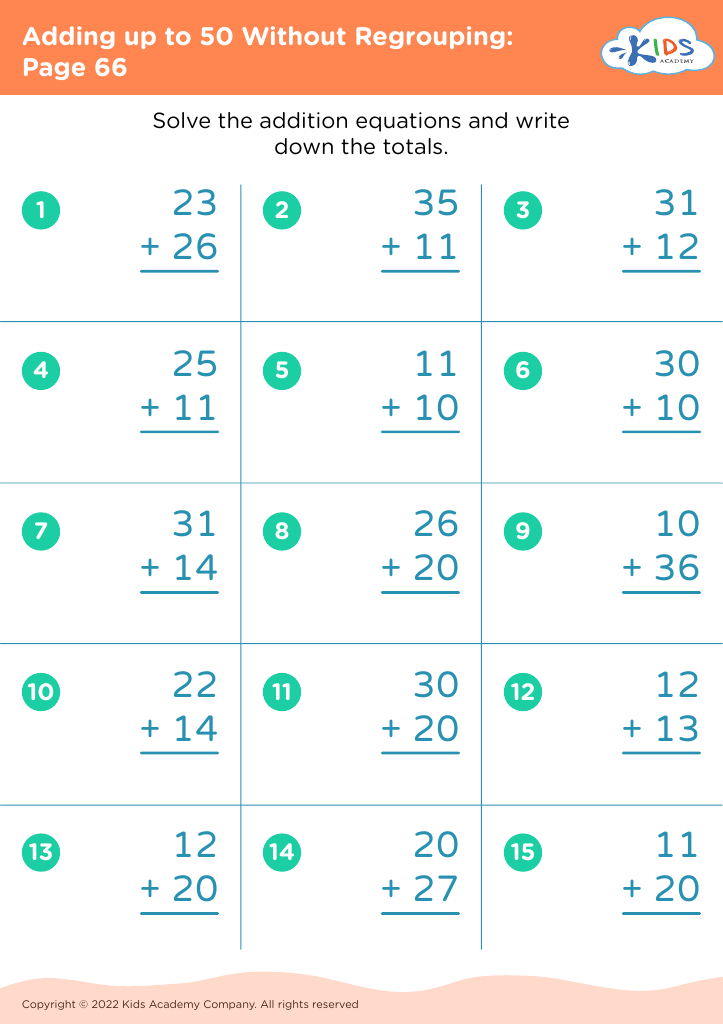Practice division Math Worksheets for Ages 5-7
3 filtered results
-
From - To
Welcome to our "Practice Division Math Worksheets" designed specifically for children ages 5-7! These engaging and colorful worksheets help young learners grasp the concept of division through fun activities. Perfect for homeschooling or classroom use, our resources feature a variety of problems that reinforce division skills while promoting critical thinking. Each worksheet is tailored to nurture your child’s mathematical understanding and boost confidence. With a mix of visual aids and hands-on exercises, these worksheets are ideal for fostering a solid foundation in math. Explore our collection and make learning division an enjoyable experience for your little ones today!
Understanding division is a foundational skill that children need in mathematics, making it crucial for parents and teachers to emphasize its practice for ages 5-7. At this early age, learning division helps children build a deeper understanding of number relationships, which is essential for their overall mathematical literacy. Introducing division concepts through visual aids and hands-on activities promotes critical thinking and problem-solving skills, which are vital in both academic settings and real-life situations.
Practicing division at this stage enables children to see it as sharing or grouping, concepts they can easily relate to. This concrete understanding lays the groundwork for more advanced mathematical concepts they'll encounter later. Furthermore, mastering division contributes to a stronger grasp of multiplication, since division is essentially the inverse operation.
Encouraging practice of division also fosters persistence and resilience in young learners, as they maneuver through challenges. This promotes a positive attitude toward math, countering common anxieties associated with the subject. In collaborative learning spaces, it encourages teamwork and communication, enabling children to express their thoughts and strategies. Ultimately, when parents and teachers prioritize division practice, they are equipping children with essential skills that will not only enhance their math abilities but also instill confidence for future learning.




















